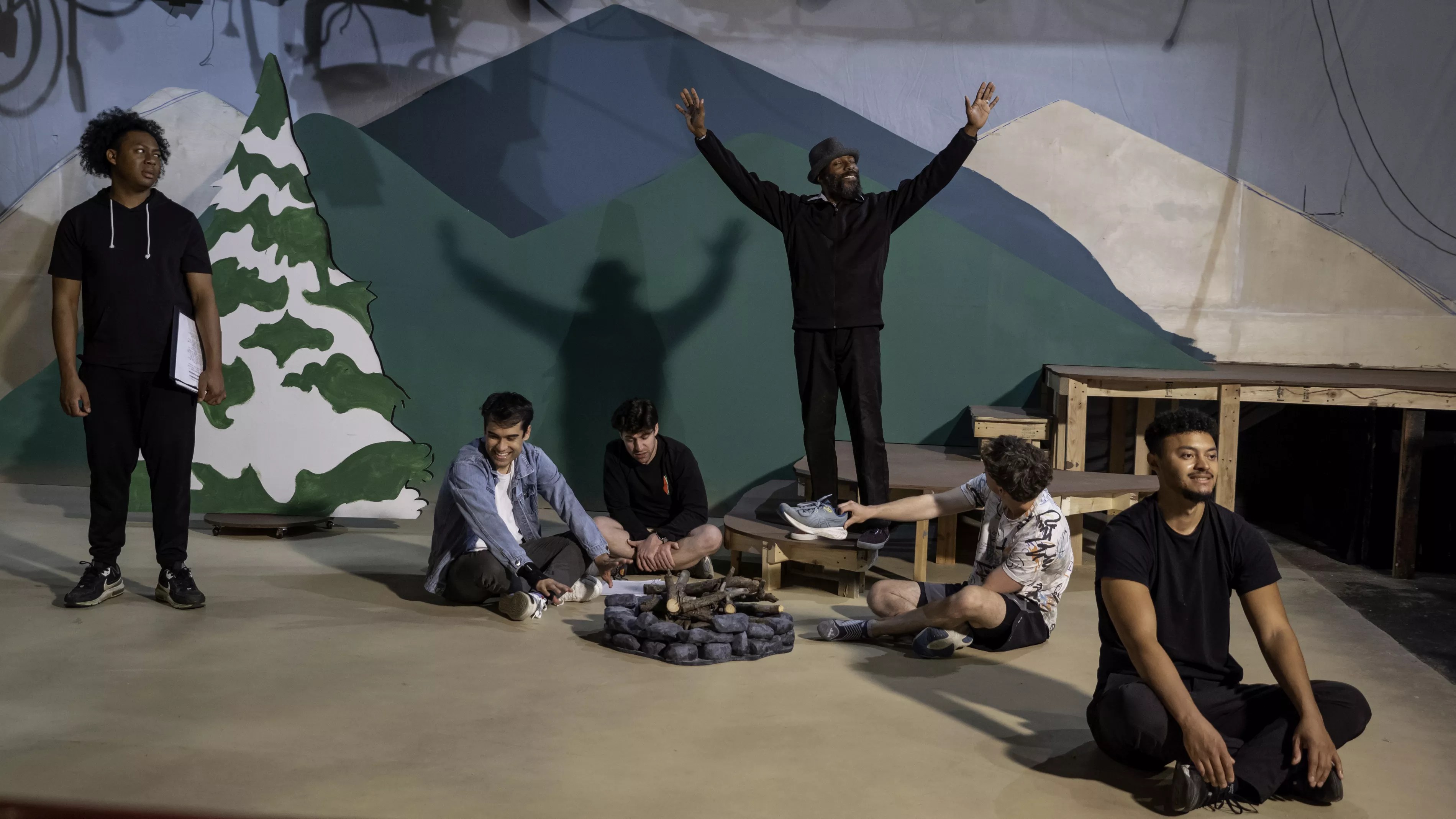
Courtesy of Gail Marie Bransteitter

Audio By Carbonatix
Just one week before Cannibal: The Musical hits the stage at Town Hall Arts Center (THAC), the cast and crew were fine-tuning the delightful absurdity that only Trey Parker and Matt Stone could dream up. Long before South Park or The Book of Mormon, the duo’s first film project was Cannibal: The Musical – a campy, gory musical romp that tells the (mostly) true story of Colorado’s infamous cannibal, Alferd Packer.
In the middle of rehearsal for the stage adaptation, a tap-dancing number titled “Let’s Build a Snowman” took shape – but don’t mistake this for anything out of Frozen. This is a chaotic song in which a group of lost miners, facing certain doom in the Rocky Mountains, decides to stop and build a snowman. Why not, right?
The madness didn’t stop there. The next scene showed the cast performing a strip tease with the finesse of a backwoods Channing Tatum, complete with breakdancer pushups and pelvic gyrations. Following this, director Steven J. Burge leaned over and perfectly summarized the situation: “That is what I mean by the musical is offensive but not hurtful.”
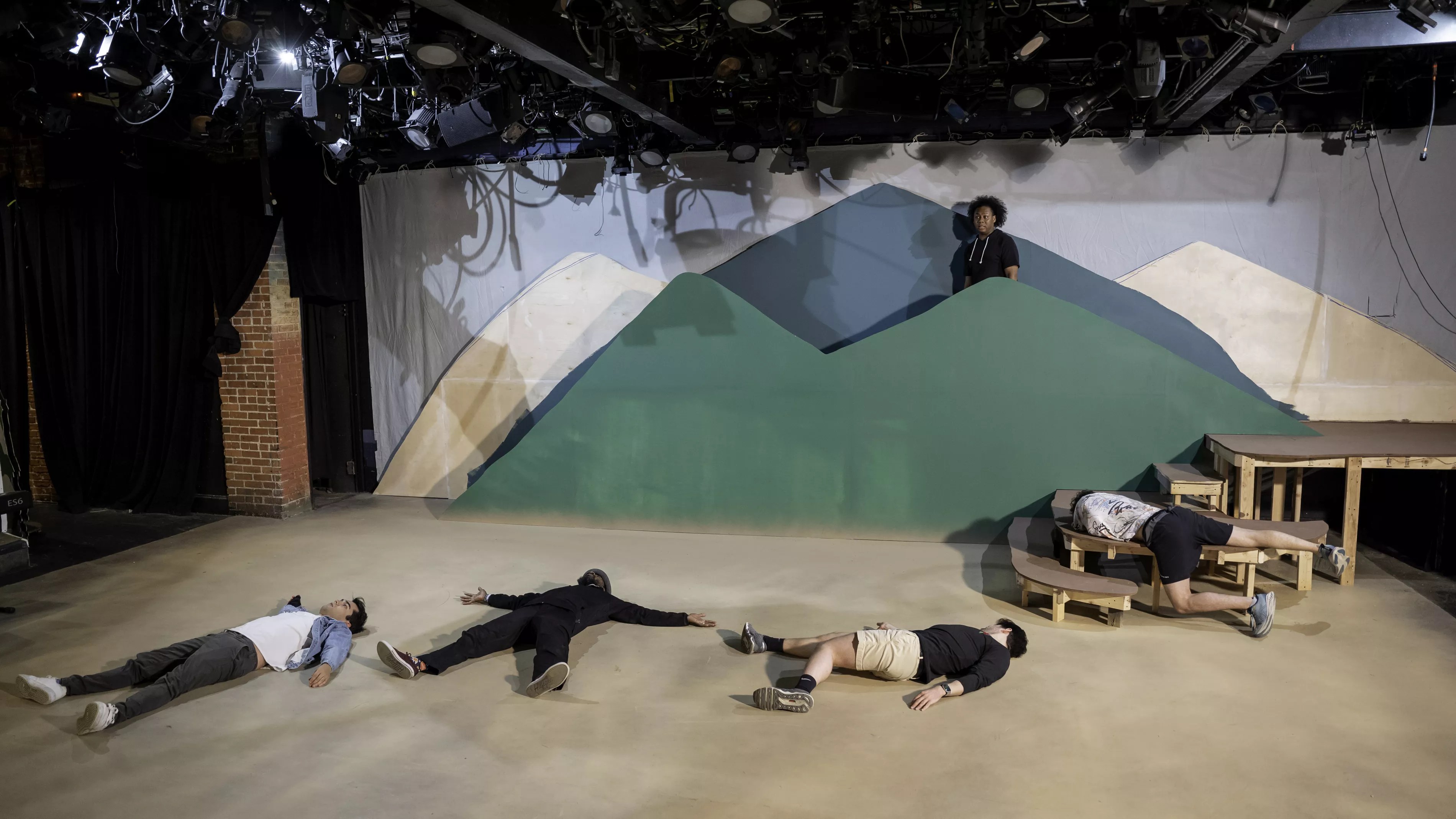
The musical adapts Alferd Packer’s tragic expedition into a satirical journey through the Rocky Mountains.
Courtesy of Gail Marie Bransteitter
Parker and Stone’s biting satire sets the tone for Cannibal. As the rehearsal demonstrated, the production embraces its outrageous Wild West origins. But what exactly is this bizarre musical about?
Cannibal, which Parker wrote while he was a student at CU Boulder, began as a low-budget film in 1993. It quickly became a cult favorite for its irreverent take on Packer, a Colorado frontiersman who is the only person in US history to have been convicted of cannibalism in the 1870s. However, this is far from a straightforward retelling. Instead, Cannibal adapts Packer’s tragic expedition into a satirical journey through the Rocky Mountains, where a group of hopeful miners set out in search of gold and love but end up lost, hungry and a little too eager to snack on one another.
“This is the kind of show where you can add lots of jokes without stepping on the heart of the show,” says the musical’s comedy captain, LuAnn Buckstein. “I’m just trying to find those moments where the actors feel comfortable with the jokes and hope the audience will laugh at the unexpected.”

“We’re going to break their hearts open with laughter,” director Steven J. Burge says.
Courtesy of Gail Marie Bransteitter
According to Burge, Cannibal was brought to him by THAC leadership as part of its limited engagement opportunities for the season. “They were going through the titles, and Cannibal has those strong local ties and it’s gory in an over-the-top, campy way,” Burge explains. “Both Trey Parker and Alfred Packer are Colorado boys, so the powers that be decided on it, and they kindly chose me as the director.”
Known for his outside-the-box approach, Burge was excited to helm a production that isn’t about sticking to the script. The adaptation guide that comes with the musical’s book is based on the film script, giving directors plenty of creative freedom to tailor the show to their tastes.
“The guide blatantly says, ‘You can’t do what’s on the page because it’s a movie script,’ so every iteration will be an adaptation,” Burge says. “It says you can’t add characters and then you turn the page and it says, ‘Add Jesus and aliens when you need to cover a quick change,’ so it’s all very loose and focused on being as silly as possible. This guide is a helpful resource as we make up our version of Cannibal.”
This flexibility is a perfect match for Burge’s style, as his production of Cannibal offers a unique version of the story that balances the outrageous humor with moments of genuine reflection. Burge was also aware that some of the material was outdated, so he worked to update the shows by making minor script changes and focusing on developing material that resonated with the performers in the room.
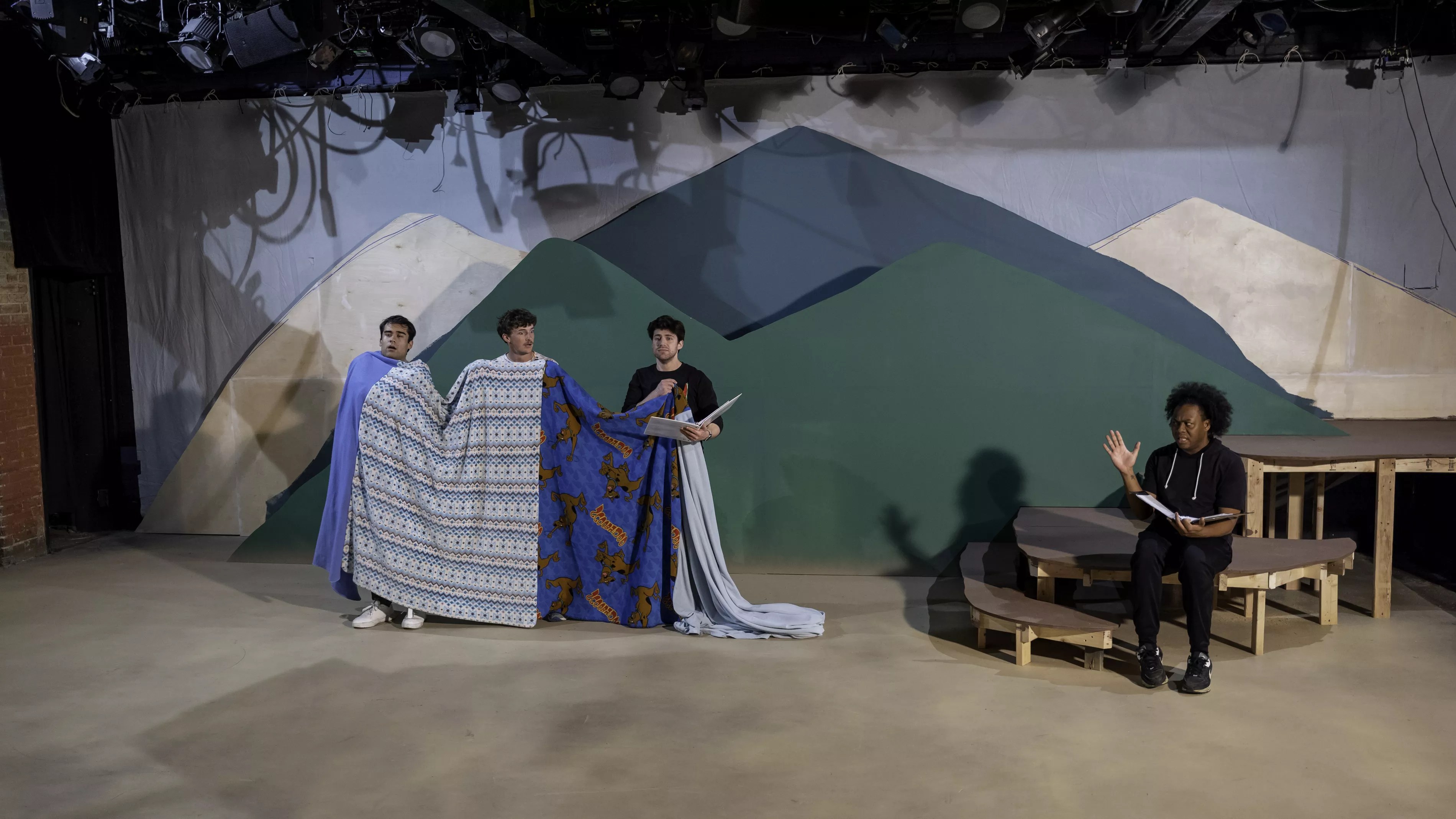
“Our show is blanketly equitably offensive; everyone can be a little bit grossed out by what they see or hear and no one has to feel targeted by what they see,” director Steven J. Burge says.
Courtesy of Gail Marie Bransteitter
“If we present it as written, it’s going to alienate people for reasons that it doesn’t need to alienate people,” Burge says. “So when you find ways to tweak the script to honor the humanity of both the characters and the actors, the story becomes accessible to more people. Our show is blanketly equitably offensive; everyone can be a little bit grossed out by what they see or hear and no one has to feel targeted by what they see. If you come to this and feel a little bit like ‘Ew,’ that’s okay. But if you come to this and feel hurt, that’s not okay.”
Burge also made intentional choices about casting, reflecting the diversity of modern America. “There’s something about the Old West that is so fundamentally American,” Burge says, “and America today doesn’t look like it did back then. So we’re taking an approach similar to Hamilton – casting actors of all backgrounds to tell a universal story.”
The music also adds another layer of humor and unpredictability. Music director Caleb Wenger was responsible for shaping the show’s quirky, intentionally offbeat score. “Trey Parker did a great job of letting the music serve the story’s comedy,” Wenger says. “In a lot of shows, the music might feel like it’s there just to sound good. But with Cannibal, it really centers the acting above the musicianship. The goal is to make people laugh.”
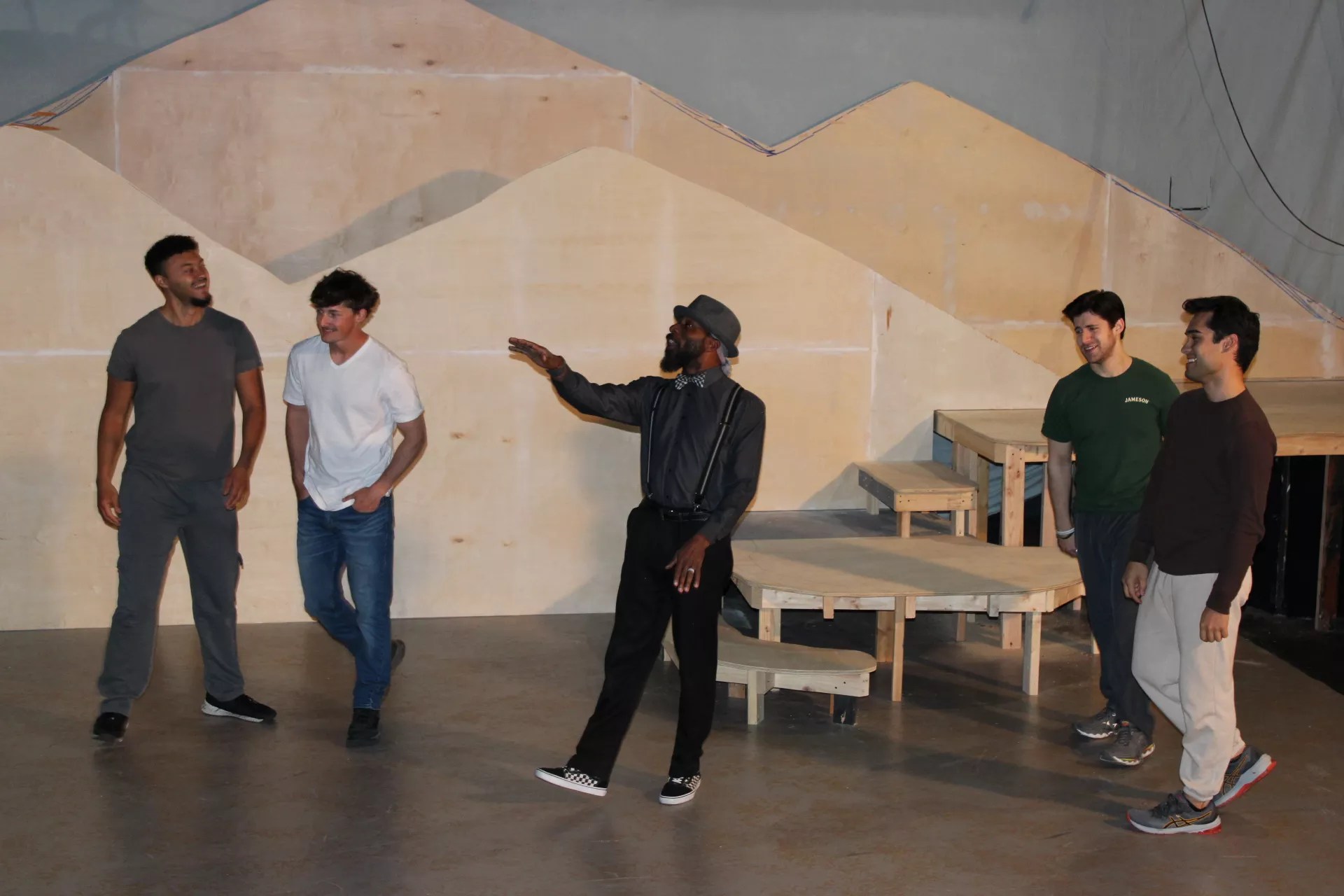
“This is the kind of show where you can add lots of jokes without stepping on the heart of the show,” says the musical’s comedy captain, LuAnn Buckstein.
Courtesy of Toni Tresca
Wenger described how the limited orchestration – primarily using keyboard patches – adds to the show’s backwoods, “rinky-dink” feel. “It musically feels like a backwoods Western town,” Wenger explained. “It feels musically like a place with not a lot of technological advancement, so what could be seen as limited scoring adds to the humor of the show.”
Choreographer John E. Lambert-Roberts, who also performs in the show, brought the humor to life through movement. “The dance style in Cannibal is influenced by vaudeville, satirical humor, and modern-day movement,” Lambert-Roberts explains. “It’s all about integrating theater magic and making funny but still technically strong dance numbers.” His choreography balances technical precision with physical comedy, using exaggerated movements to complement the show’s chaotic energy.
“There’s always a way to make things look funny but still have that sparkle,” Lambert-Roberts adds. “Modern dance is all about playing with mundane movements like walking, patterns, and people who make things out of clumsiness, so it is those simple elements with the occasional jazz square thrown in to make it a dance.”
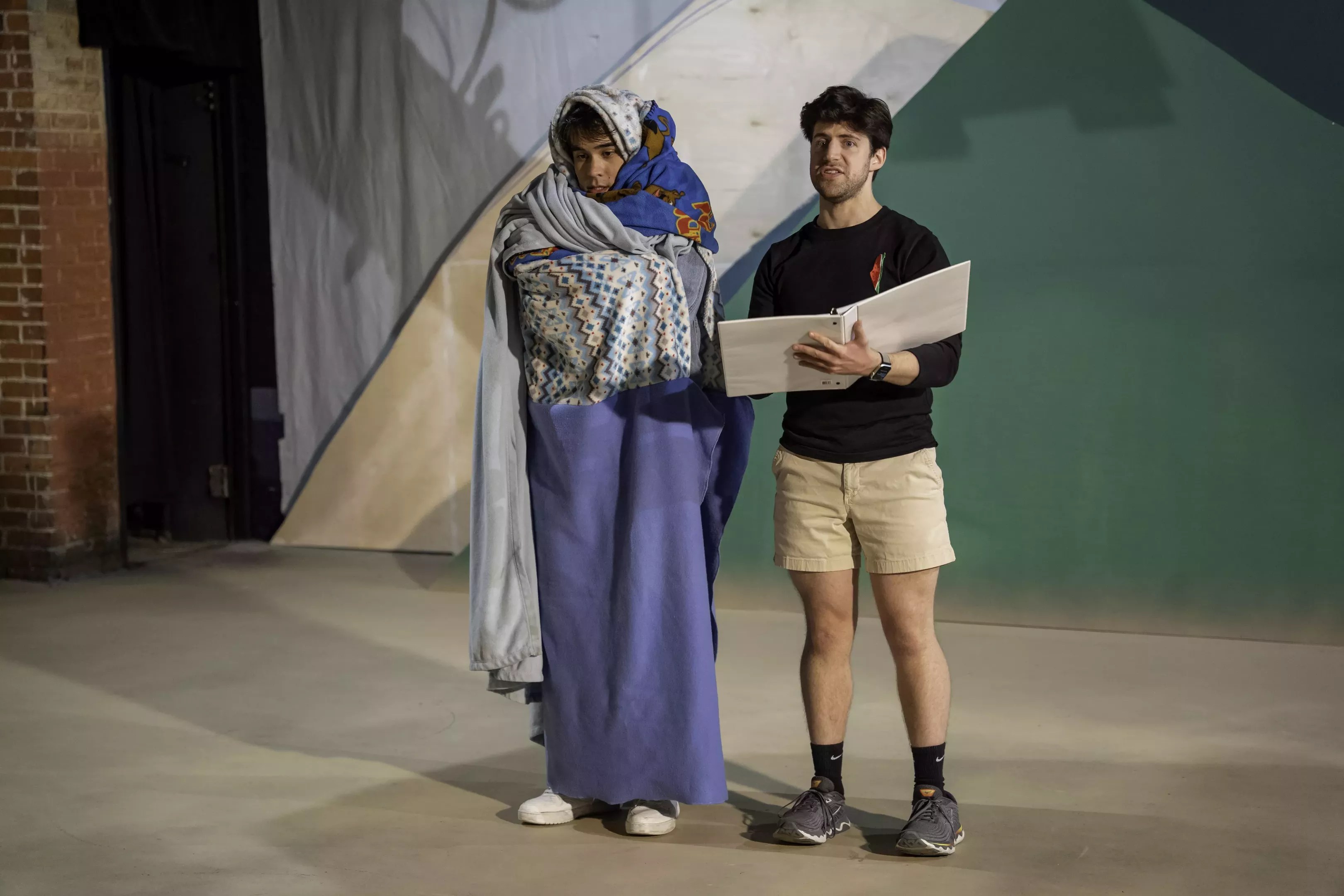
The show is sold out, with only a few single tickets and a limited number of rush tickets available at the box office for each performance.
Courtesy of Gail Marie Bransteitter
While Cannibal is rooted in satire, the creative team didn’t shy away from addressing the complexities of its content. Equity, Diversity, Inclusion, and Accessibility (EDIA) Consultant Iliana Lucero Barron played a crucial role in ensuring the production stayed respectful of modern sensibilities. She applauds that “THAC has taken the initiative of promoting more inclusion by stepping away from what is ‘comfortable,’ by bringing DEI work to their space but also helping nurture and create opportunity for performers and people you don’t typically see in shows. They also are really trying to bring stories to the stage that touch on and reflect other communities!”
With so much going into the production, it’s no surprise that Cannibal has been in high demand. The show is sold out except for a few single tickets, with the best availability on Halloween. THAC also offers a limited number of $10 rush tickets at each performance, or patrons can call the box office to inquire about additional ticket options not listed online.
“My friend once said that comedy is more powerful than drama to her because when you make somebody laugh, it breaks their heart open and while they are laughing, you can, in that split second, dive in and then hit them with something impactful as well,” Burge says. “It is oftentimes more effective than preaching at someone or giving them a big, heavy drama to sort of slog through. We’re going to break their hearts open with laughter, and if they see something on stage that they weren’t expecting in terms of gender or race or some other kind of identity that is part of the human experience, all the better – let it sink in through laughter.”
Cannibal: The Musical, Friday, October 25, to Sunday, November 3 at Town Hall Arts Center, 2450 Main Street, Littleton. Learn more at townhallartscenter.org.